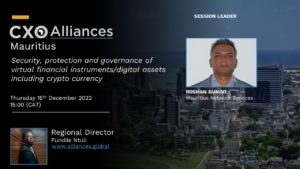CISO Digital Alliances Session Information
Date: Thursday, 15th December 2022
Time: 15:00pm – 16:30pm (MST)
Location: Invite only by Regional Director – Microsoft Teams
The Alliances chapter is a gathering consists of business risk, information and cyber security leaders who have been highlighted as being able to offer value in terms of content and influence. It is designed to form alliances and to drive progressive change in the business world and beyond.
The content and format is designed to talk together, learn better and experience more.
Format: Invite only Security Leaders debating pertinent, real life issues through the form of digital open forum.
Chatham House Rule will be applied
Outcomes:
- Depth achieved around business objectives where the opportunity of experience within the attendees is leveraged
- Benchmarking and verification of thought processes outside of existing networks i.e. the broader CISO Alliances community
- Industry progression and unity in impacting the challenges of the common business objectives
- Not corporate flag waiving or sales pitches. We insist, do that elsewhere.
Theme:
Security, protection and governance of virtual financial instruments/digital assets including crypto currency




